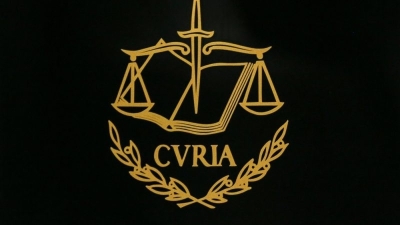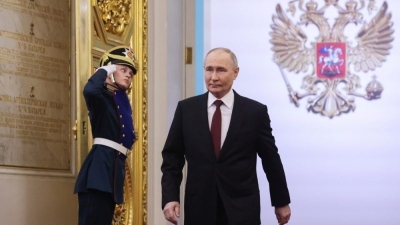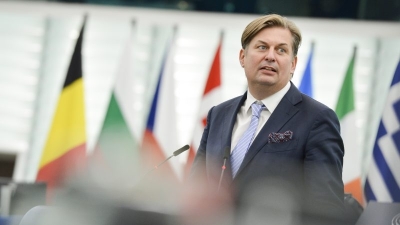Latvia approves ban on Russian agricultural products

In a historic move, Latvia’s parliament approved a ban on agricultural imports from Russia and Belarus on Thursday until at least 2025, making it the first EU country to do so.
Following the invasion of Ukraine in February 2022, the EU imposed economic sanctions on Russia, but food products were excluded – allowing the Baltic states, with their large grain storage capacity and efficient port infrastructure, to become a hub for grain from Russia, whose harvests have been quite exceptional in recent years.
In Latvia, however, the situation prompted many farmers to stage protests in recent weeks, calling for an immediate ban on food imports from Russia and Belarus, a move supported by Latvian President Edgars Rinkevics.
Latvia is the EU’s second-largest importer of Russian agricultural and animal feed products behind Italy, with the Latvian Agriculture Ministry pointing to imports worth €280 million or 12% of the EU’s total imports over the first 10 months of last year.
European Commission figures even point to an increase in cereal and oilseed imports between 2022 and 2023, with imports rising from 102,000 tonnes to 360,000 tonnes for cereals and from 80,000 to 370,000 tonnes for oilseeds.
The Latvian ban, therefore, prohibits importing agricultural and animal feed products from Russia and Belarus into Latvia, as well as importing agricultural and animal feed products originating in Russia or Belarus from other third countries into Latvia until 1 July 2025.
However, Russian and Belarusian agricultural and animal feed products currently in transit will remain or will be transported to other EU countries after customs clearance.
This ban comes a month after Latvia’s Agriculture Minister Armands Krauze called on the European Union and its member states to take “concrete and immediate” action to impose sanctions on Russian food imports.
“Last year saw an influx of cheap Russian grain into Latvia, which, by unfair competition, is driving Latvian and other EU companies away from logistics, ports, our own markets and export markets,” said Krauze.
With parliament’s vote on the ban, the Latvian government will submit a report to parliament by 1 March 2025 on its impact on the national economy and, if necessary, submit legislative amendments to parliament.
(Charles Szumski | Euractiv.com)
Read more with Euractiv




